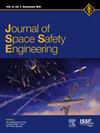作为国家和欧洲空间法基础的普遍安全标准
IF 1.7
Q3 ENGINEERING, AEROSPACE
引用次数: 0
摘要
本文件的主要目标是强调普遍技术安全标准作为空间法的基石的极端重要性,这符合安全和可持续性的要求。缺乏这种标准已经产生了有害的影响,某些空间运营者购买论坛的事例就证明了这一点。因此,连贯的技术安全标准应普遍适用,超越空间活动领域中民用和军事行动的区别。国际民航组织等全球公认的机构应促进、维护和调整通用安全标准。这符合起草“关于航空安全和不受控制的空间物体再入的蒙特利尔建议”(加拿大OSI出版)的工作组的假设。这种做法在加强空间工业和整个空间生态系统内的风险管理文化方面具有明显的优势,例如空间活动的筹资和保险。这也与空间法的纯粹补偿性方法(其制度只触发过一次)向预防性范式的明显转变相吻合,正如美国政府决定对EchoStar-7卫星的运营商罚款,因为它未能遵守离轨机制的安全标准所证明的那样。最后,本文试图从三个方面强调技术安全标准在规范空间活动方面的重要性:(1)实质性的全球一致性,(2)对所有类别空间活动的适用性,以及(3)以多层次治理框架为基础。本文章由计算机程序翻译,如有差异,请以英文原文为准。
Universal safety standards as a foundation of national and European space laws
The primary objective of this paper is to underscore the paramount importance of universal technical safety standards as a cornerstone of space law, consistent with the imperatives of safety and sustainability. The absence of such standards has already had detrimental effects, as evidenced by cases of forum shopping by certain space operators. Consequently, coherent technical safety standards should be universally applicable, transcending the distinction between civil and military operations in the field of space activities.
Universal safety standards should be promoted, maintained and adapted by a globally recognised body such as ICAO. This is in line with the postulates of the working group that drafted the "Montreal Recommendations on Aviation Safety and Uncontrolled Space Object Re-entries" (published by OSI, Canada). Such an approach has obvious advantages in terms of strengthening the risk management culture within the space industry and the whole space ecosystem, such as the financing and insurance of space activities. It also coincides with the visible shift from the purely compensatory approach of space law (whose regime was only triggered once) to a preventive paradigm, as demonstrated by the US government's decision to fine the operator of the EchoStar-7 satellite for failing to comply with safety standards for the de-orbiting mechanism.
In conclusion, this paper seeks to highlight the importance of technical safety standards in regulating space activities in three dimensions: (1) substantive global coherence, (2) applicability to all categories of space activities, and (3) underpinning by a multi-level governance framework.
求助全文
通过发布文献求助,成功后即可免费获取论文全文。
去求助
来源期刊

Journal of Space Safety Engineering
Engineering-Safety, Risk, Reliability and Quality
CiteScore
2.50
自引率
0.00%
发文量
80
 求助内容:
求助内容: 应助结果提醒方式:
应助结果提醒方式:


